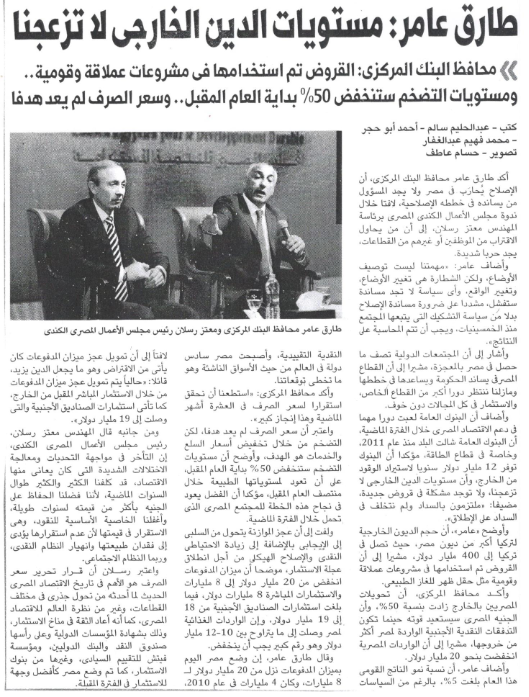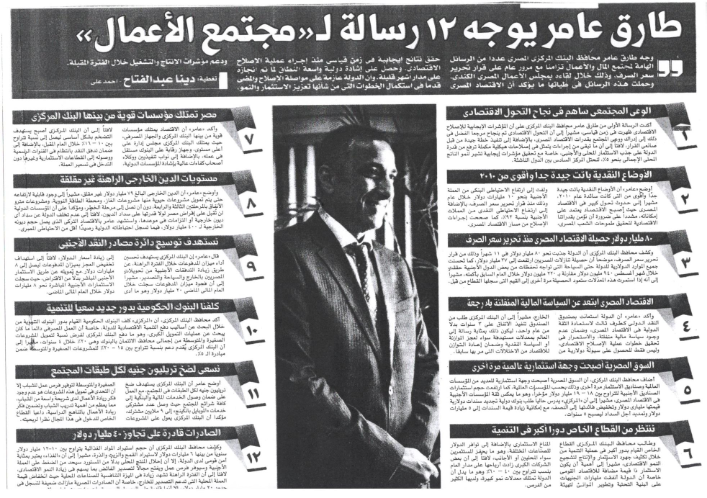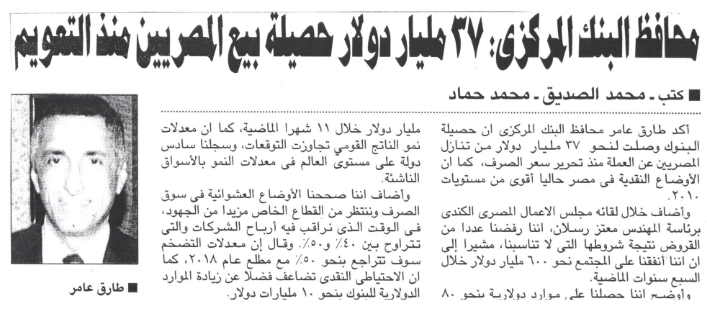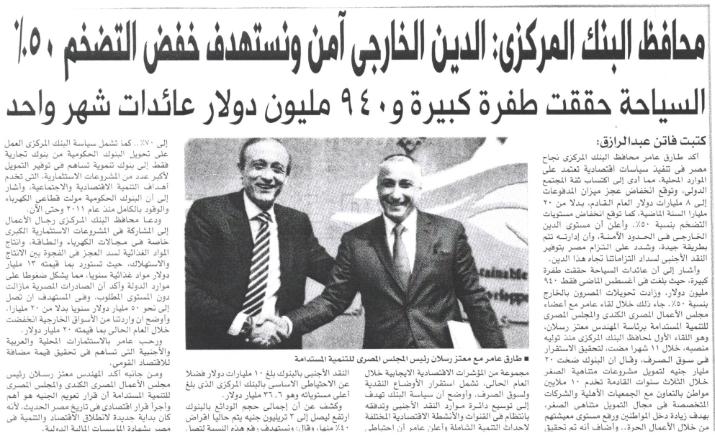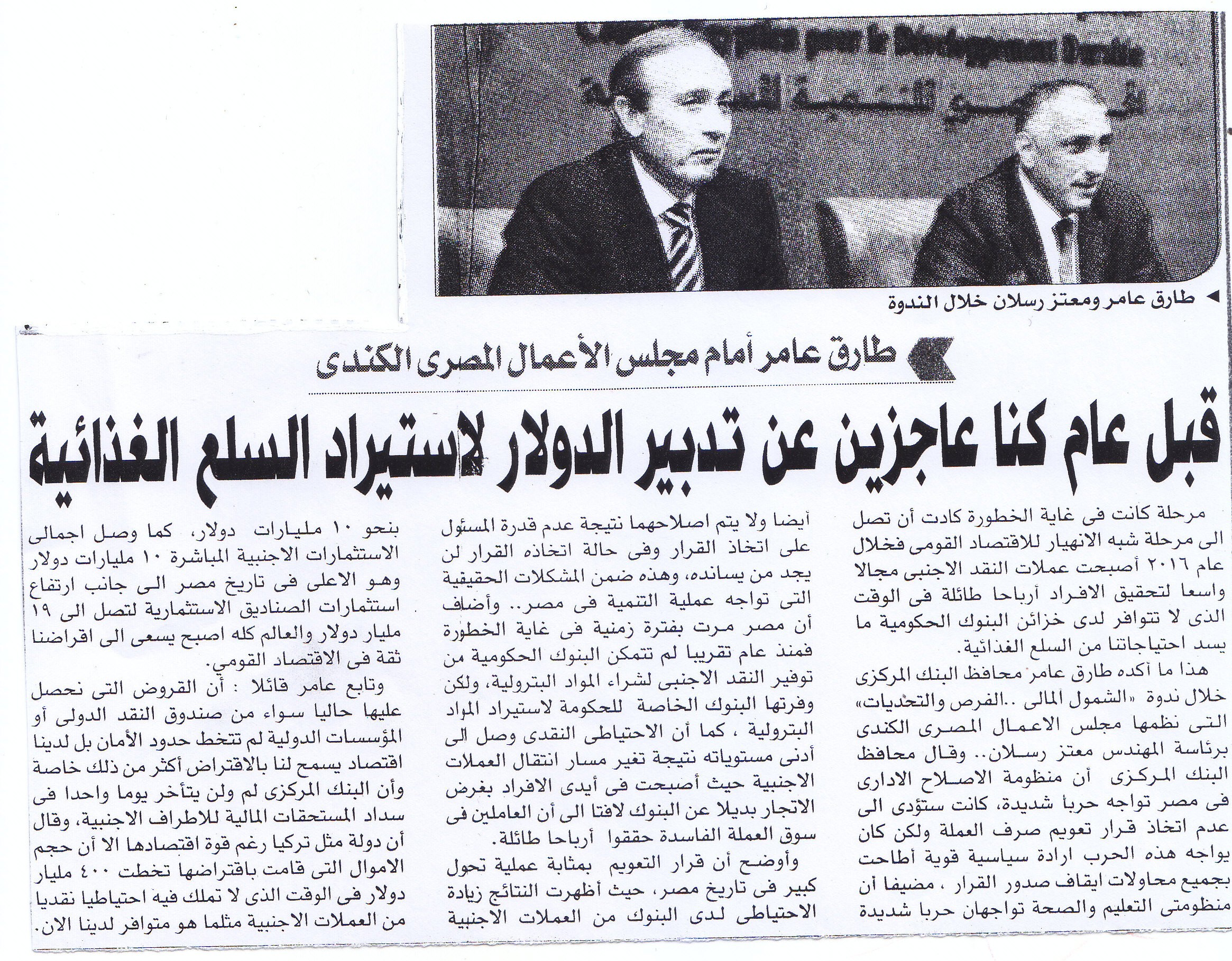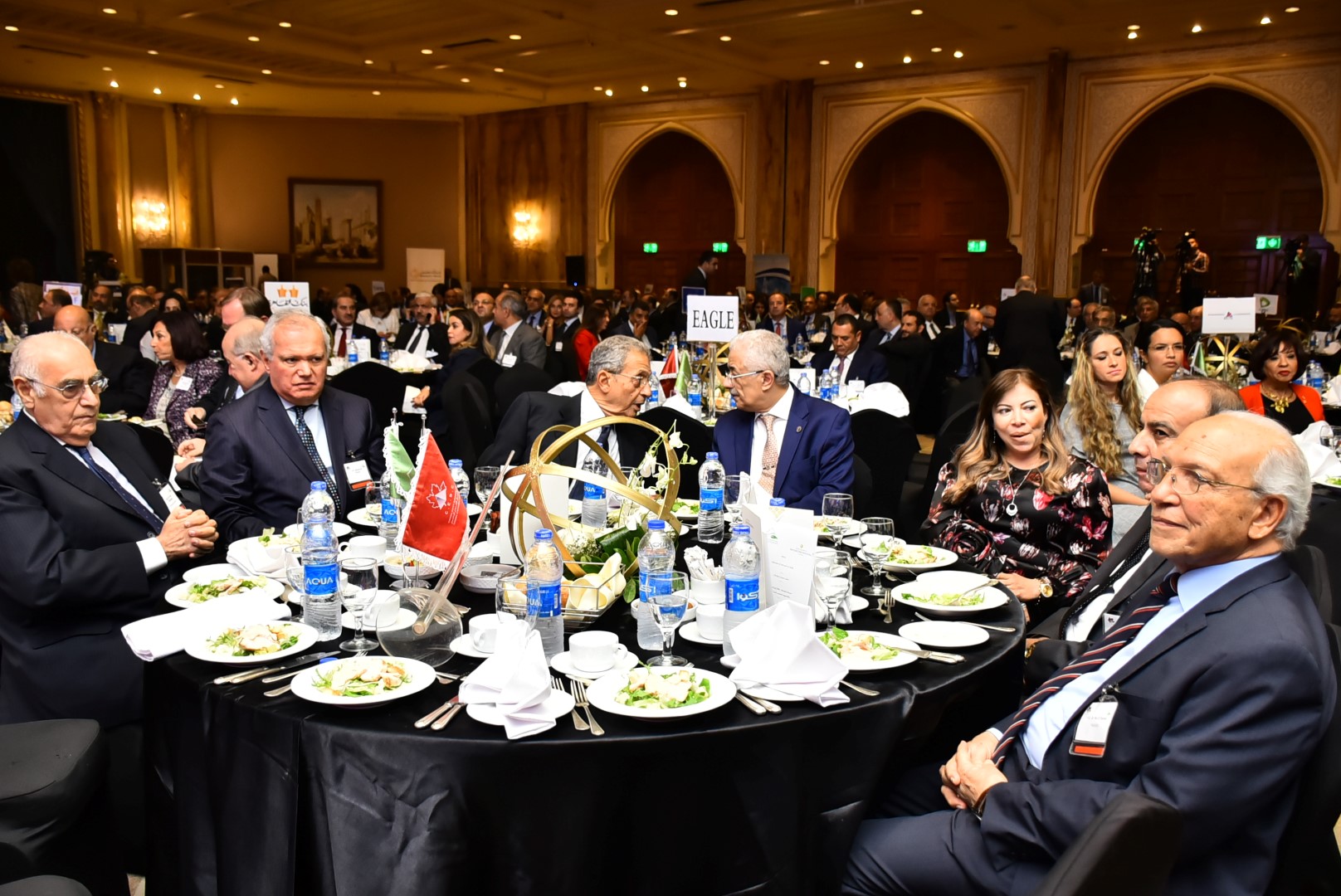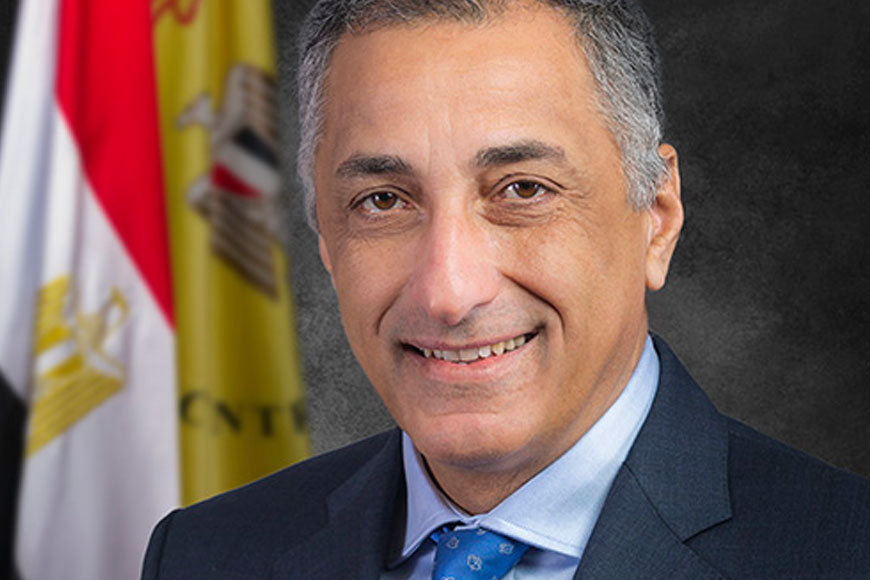
Date
Speaker(s)
Designation
Presentation
Description
The Central Bank of Egypt has succeeded in planning the right policy to put the Egyptian economy on the right track, which is an evidence of increasing confidence of international institutions in the Egyptian economy, the rise in foreign reserves to unprecedented levels, ending the black market of the foreign currency and increasing the flow of foreign direct investment. However, despite the optimism of these achievements, there are still some challenges facing the economy, including high inflation rates and achieving financial inclusion, in addition to the rise in external debts. In this context, Canada Egypt business council and the Egyptian council for sustainable development organized an event with the governor of the central bank of Egypt Mr. Tarek Amer.
In the opening remarks Eng. Motaz Raslan, welcomed all members and guests and thanked them for always supporting the council’s activities, then he mentioned that the instability of the Egyptian currency is causing a disturbance in the Egyptian economy, as many traders became unable to afford importing the same quantity of goods they used to import, the floatation of the currency also affected the monetary and social policy, where this impact is reflected on controlling the money supply and inflation. He added that the central bank accepted the challenge of liberalizing the exchange rate in November last year, despite the criticisms that was faced by several institutions and authorities, but we cannot deny that this decision is one of the most important economic decisions in the history of Egypt, as it contributed to the return of investor confidence in the investment climate, in addition to the praise of international institutions, especially the International Monetary Fund.
Tarek Amer, the governor of the Central Bank of Egypt, said that we are not facing any obstacles with the current levels of external debts, he added that the size of Turkey’s external debt is greater than that of Egypt, where it reaches 400 billion dollars in Turkey; and that borrowed loans in Egypt were used in giant and national projects such as the field of natural gas. He explained there is a room for us to borrow, which is reflected in the continuation of international financial institutions as the World Bank and the IMF to provide funding for developing the Egyptian economy. He stressed that the volume of local loans is about 1.5 trillion pounds, while bank deposits reach 3 trillion pounds, and the central bank is currently aiming to control the level of prices of goods and services, not the exchange rate. He pointed out that inflation rate levels reached 35%, which is a high level according to statistics and data, but it will begin to decline in the upcoming period by 50%, in the middle of the next year, and return to the previous rate levels later in the same year.
The Governor of the Central Bank encouraged the private sector in Egypt to widen their investment to overcome the food and textile gap. He pointed out that the government imports food resources that amount up to 12 billion dollars per year, including 2 billion for wheat and the same for oil. Therefore, it is essential for investors to fill these gaps so that the country can be able to sustain its basic needs. He added that the economic community should be positive in defending Egypt abroad and in return the banking sector will devote its full capacity for supporting and financing their needs locally or abroad.
The governor was questioning why there are still some investors who are worried about certain threats, although the state had spent on infrastructure what was never spent in years to improve the investment climate. He also asked the private sector businessmen why there weren’t putting a huge investment in the electricity sector while the government implemented all the needed power plants, although the field was open for the private sector to invest. Besides, the banking system has received about 80 billion dollars since the decision to liberalize the foreign exchange rate was taken last November, through policies that fit the global market and expand the foreign exchange cycle; in addition to the new monetary system is characterized by its defense of the economy against future shocks.
Furthermore the issue of the private sector complaining about the lack of dollars over the past period has been opened, explaining that the problem has now been solved and the main current challenge is the size of exports. He said that the government has completed the implementation of financial and monetary reforms, and now we need to carry out the structural reforms necessary to launch Egypt in the way of attracting domestic and foreign investments.
He discussed that investment policy must be directed to provide employment opportunities for youth to reduce unemployment rates, pointing out that the current rates have fallen in the past period from 13% to 12%, and could continue to fall to their historical levels of 7% if the investment policy achieved their goals .
Governor Tarek Amer revealed that the Central Bank is pumping about 20 billion pounds to serve 10 million micro-projects over the next three years, through associations and companies specialized in the field of microfinance. He also mentioned that the new investments produced will lead to a decline in the exchange rate of foreign currencies. He called on the private sector and exporters to contract with international trade companies for marketing, because it is not logic for each company to search for export markets individually.
The floor was opened for questions and answers session, where several ideas and suggestions were raised concerning the foreign external debt, financing investment and the monetary policy recommendations to increase foreign reserves.


